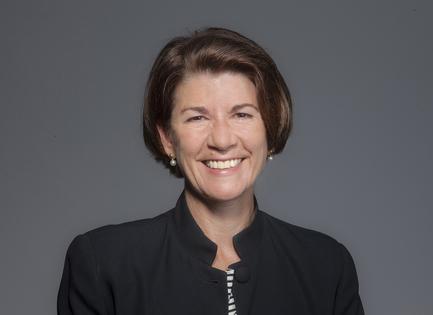Ask Amy: Exclusion brings out the worst in in-laws
Dear Amy: When our son and his wife announced their pregnancy (our first grandchild) it was at an event held at her folks’ house. They announced that her mother was going to be a grandmother for a fourth time, completely leaving us out and never mentioning us, even though we were there.
Later, we had a talk with them. We told them that we were upset about how the announcement was made, but we understood that they didn't mean to hurt us.
We asked them to please keep in mind that their child will have two sets of grandparents.
They seemed genuinely stunned and were very sorry. We forgave them, moved on, and never mentioned the episode to anyone.
Her mother became more distant and cold toward us. It seems that our daughter-in-law related this episode to her mother.
A few months later, when the kids announced the baby's name, it was again a showcase only on her parents. We were not acknowledged.
I must have looked hurt. Her parents then exploded at us, threatening violence and calling us narcissistic.
They said very mean and nasty things, and mocked me for being hurt.
She told me that I would have “Hell to pay” if I ever corrected her daughter again. This played out in front of other people, who were just as stunned as my husband and I were.
Now they completely ignore us. We are no longer invited to family gatherings, changing the whole dynamic of our two families.
Importantly, since the baby’s birth, our son and daughter-in-law are very inclusive. They have been very kind to us throughout. I actually feel like we are closer than we were before, even though we have never talked about what happened. We don't want to put them in the middle.
I'm wondering if we should try to talk to her parents about this, or should we leave it be?
– First-time Grandparents
Dear Grandparents: Kudos to you and your son and daughter-in-law for handling this exclusion issue immediately and respectfully. Your honesty and discretion seems to have set this important relationship on a positive course.
In terms of the other in-laws, if you can think of a legitimate or pressing reason to risk their wrath, then go ahead and wade in. But avoiding rude and volatile people is a natural and protective instinct, and steering clear is a logical consequence of their behavior toward you.
You might, however, ask your daughter-in-law if she would like for you to attempt to reach out to her parents for any reason. In my view, this is not putting her in the middle of anything, but is showing her that you are sensitive and respectful.
She might actually prefer keeping these bullies away from you, at least for now.
Dear Amy: This seems minor, but here goes: My granddaughter is 11. She is spunky and smart. Precocious.
Recently, she stayed with my husband and me for a few days. It was really a lot of fun.
However – she was using her phone fairly constantly to film things, including us (of course), and our pets. Harmless stuff and I didn’t mind at all.
Well … then I learned that she was posting a lot of these videos on TikTok. I learned this because she showed us.
I was not happy about this – at all – and I sat with her and asked her to delete all of the videos she had posted that were filmed at our house. I watched as she did this.
She’s upset, and my husband disagrees with my choice. Neither of us can decide whether to tell her mom (our daughter).
– TikTok-ed Off
Dear TikTok-ed Off: You did the right thing. Your granddaughter needs to learn about privacy and consent.
She also should not have a TikTok account (until she is 13).
Yes, you should talk to her parents. They might not even realize she has an account.
Their daughter is old enough (and probably clever enough) to create and post a feature-length film. However, she is not old enough or mature enough to understand concepts like risk, privacy, and consent.
This is how she will learn.
Dear Amy: “Impatient Ida’s” boyfriend goes silent in response to stresses unrelated to her or their relationship.
She should plan (if she stays with him) to experience this dynamic repeatedly. It's very frustrating to be involved with someone who withdraws whenever he runs into one of life's common problems, and it undermines emotional intimacy. This is an early warning signal.
– R
Dear R: Absolutely.
========
(You can email Amy Dickinson at askamy@amydickinson.com or send a letter to Ask Amy, P.O. Box 194, Freeville, NY 13068. You can also follow her on Twitter @askingamy or Facebook.)
©2023 Amy Dickinson. Distributed by Tribune Content Agency, LLC.


















Comments